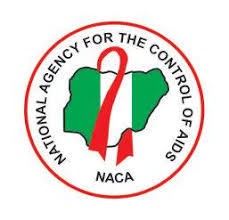THE Director-General of the National Agency for the Control of AIDS (NACA), Dr. Temitope Ilori has said that 1,400 new HIV infections were recorded weekly and 50,000 AIDS-related deaths were recorded in Nigeria.
Dr. Ilori made this known at the general meeting and scientific conference of the Medical and Dental Consultant Association of Nigeria at the Obafemi Awolowo University Teaching Hospitals Complex (OAUTHC), Ile-Ife, in Osun State, with the subtheme “Current Concept of HIV/AIDS in Nigeria: The Policy and Funding.”
According to her, Nigeria unfortunately accounts for 25 per cent of the global vertical transmission of HIV between mothers and children, while 22,000 new infections were recorded among children aged 0 to 14 in 2023 and continues.
She added, “In practical terms, about a thousand AIDS-related deaths were reported weekly in the year 2023. So, it’s just to say that HIV is still here with us and we should not put it to the back. It is still a public health challenge even in Nigeria as we speak, particularly paediatric HIV.
“In fact, at the International AIDS Society conference in Munich, Germany, they kept emphasising the fact that if we can actually reduce the prevalence of HIV/AIDS in Nigeria, particularly amongst children and women, we’ll be reducing like 25 percent of the global burden of HIV/AIDS. Our population makes us a key target population in terms of reducing HIV/AIDS.”
Dr. Ilori declared that the cumulative effects of the disease have had their toll on the country’s growth and development, especially on households’ and communities’ socio-economic, cultural, health, and general well-being.
“Nigeria’s policy framework for the national multi-sectoral response to HIV and AIDS provides comprehensive prevention, treatment care, and support services.
“Significant progress has been made, including increased domestic and international funding; however, challenges still remain in ensuring sustainable financing and universal access to HIV services.
“Continuous support is needed from stakeholders to strengthen HIV and AIDS policies; enhance the funding mechanisms, especially from domestic sources; improve the implementation of strategic plans and the roll-out and implementation of the National HIV Sustainability Plan.”
Earlier, Professor Ebunoluwa Adejuyigbe, in her guest lecture entitled “Grantsmanship and Partnership: Framework for Development,” said in the competitive market for research money. Grantsmanship skill is required.
She declared that Africa produces about two per cent of world health research output, yet the region accounts for 15 per cent of the global population and 25 per cent of the global disease burden, even as over 10 per cent of sub-Saharan Africans with graduate degrees emigrate.


